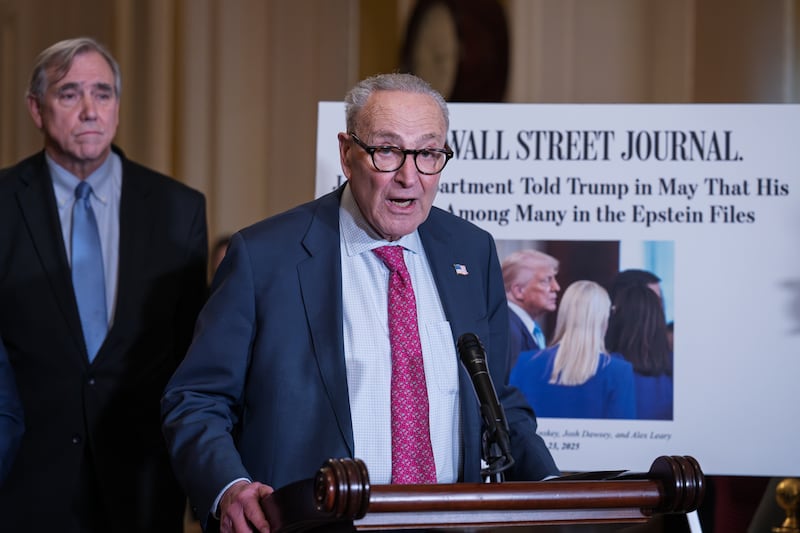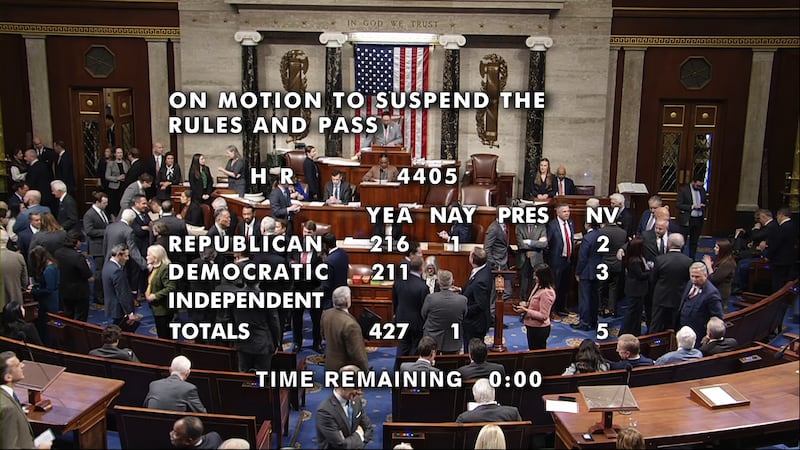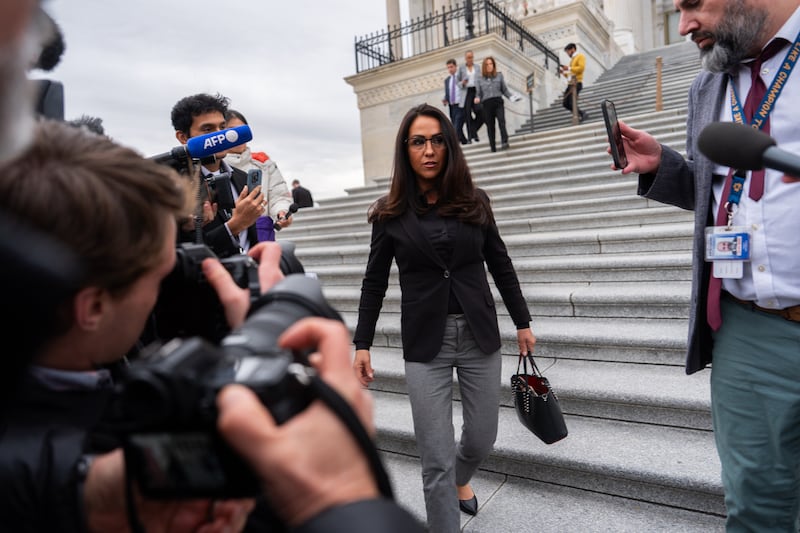President Donald Trump signed the bill Wednesday night that will trigger the release of the Epstein files.
The bill cleared both chambers of Congress on Tuesday. The legislation instructs the Department of Justice to release its full investigation into convicted sex offender Jeffrey Epstein.
In a post on Truth Social Wednesday night, Trump said Epstein was a “lifelong Democrat, donated Thousands of Dollars to Democrat Politicians, and was deeply associated with many well-known Democrat figures,” listing Democratic politicians and donors who were known to associate with Epstein, including former president Bill Clinton, former treasury secretary Larry Summers, and Del. Stacey Plaskett.
“Perhaps the truth about these Democrats, and their associations with Jeffrey Epstein, will soon be revealed, because I HAVE JUST SIGNED THE BILL TO RELEASE THE EPSTEIN FILES!,” he said.
He added, “At my direction, the Department of Justice has already turned over close to fifty thousand pages of documents to Congress. Do not forget — The Biden Administration did not turn over a SINGLE file or page related to Democrat Epstein, nor did they ever even speak about him. Democrats have used the ‘Epstein’ issue, which affects them far more than the Republican Party, in order to try and distract from our AMAZING Victories... ."
Trump was also an associate of Epstein, and Democrats have put the spotlight on the president’s ties to Epstein as Trump resisted calls to release files related to investigations into the disgraced, well-connected financier.

Democrats and some within the Republican Party put pressure on Trump to fulfill his campaign promise to release all of the files.
Trump abruptly reversed his stance about the files on Sunday night and said there was “nothing to hide,” so they should pass the legislation and get back to work. That message got GOP leaders on board, including House Speaker Mike Johnson, R-La., who announced Tuesday that the resolution would go forward.
Lone Republican voted against releasing Epstein files
In the House, the vote on the matter was nearly unanimous, with just one Republican voting no.
Rep. Clay Higgins of Louisiana said he had been a “principled” no on the bill since its inception and argued that there are still things wrong with the measure.

“As written, this bill reveals and injures thousands of innocent people — witnesses, people who provided alibis, family members, etc. If enacted in its current form, this type of broad reveal of criminal investigative files, released to a rapid media, will absolutely result in innocent people being hurt,” Higgins shared on social media after the vote.
Higgins urged the Senate to amend the bill to “properly address privacy of victims and other Americans” and he would support it then. The text of the resolution however, as noted by Rep. Thomas Massie, R-Ky., who introduced the measure, includes a note that would redact identifiable information of victims.
Massie introduced the discharge petition in September, which allowed rank-and-file lawmakers to force the vote on the legislation without leadership signing on, so long as a majority of the chamber approved. That threshold was met after newly elected Rep. Adelita Grijalva, D-Ariz., was sworn in.
Once passing in the House, the Epstein measure went to the Senate on Tuesday, where senators approved the measure through a unanimous consent agreement.
Speaker Johnson said he was “deeply disappointed” that amendments were not made to the bill.
Documents show Democratic rep was texting Epstein during hearing
Just hours after the measure passed in both the House and the Senate, the lower chamber again voted on an attempt to censure Delegate Plaskett, a Democrat from the Virgin Islands.
A batch of files related to Epstein showed Plaskett had been texting with Epstein during a congressional hearing, where he suggested questions to ask. The attempt to punish Plaskett and remove her from the Intelligence Committee failed, with all Democrats and three Republicans voting against her censure, Axios reported.
Another Democrat caught up in a recent document releases is former Clinton administration treasury secretary Larry Summers, who went on leave from his teaching position at Harvard University on Wednesday after questions again arose about his relationship with Epstein, as reported by The Associated Press.

On Tuesday afternoon, Trump said he didn’t care when the measure passed through Congress, but he wanted to remind Republicans not to “take their eyes off all of the Victories that we’ve had,” noting the “Great Big Beautiful Bill” and other achievements of his second term.
Attorney General Pam Bondi will now be required to release all materials and documents that are in the DOJ’s possession related to Epstein and his co-conspirator and ex-girlfriend, Ghislaine Maxwell, within 30 days. Bondi can withhold information that could jeopardize a federal investigation or put the victims in danger by identifying them.
At a press conference Wednesday, Bondi was asked if she would release the files within 30 days once Trump signs it into law. She confirmed that “we will follow the law.”
The release of the files is of growing public interest, particularly as the names rumored to be in them include high-profile individuals, including Trump and former President Bill Clinton.
The law also instructs the Justice Department to report what information in the files related to Epstein’s life and death it is withholding from public release, including the redactions. Still, the release could trigger a sprawling federal investigation into individuals named in the files that could delay or impact the public from seeing it in full.

Contributing: Suzanne Bates


